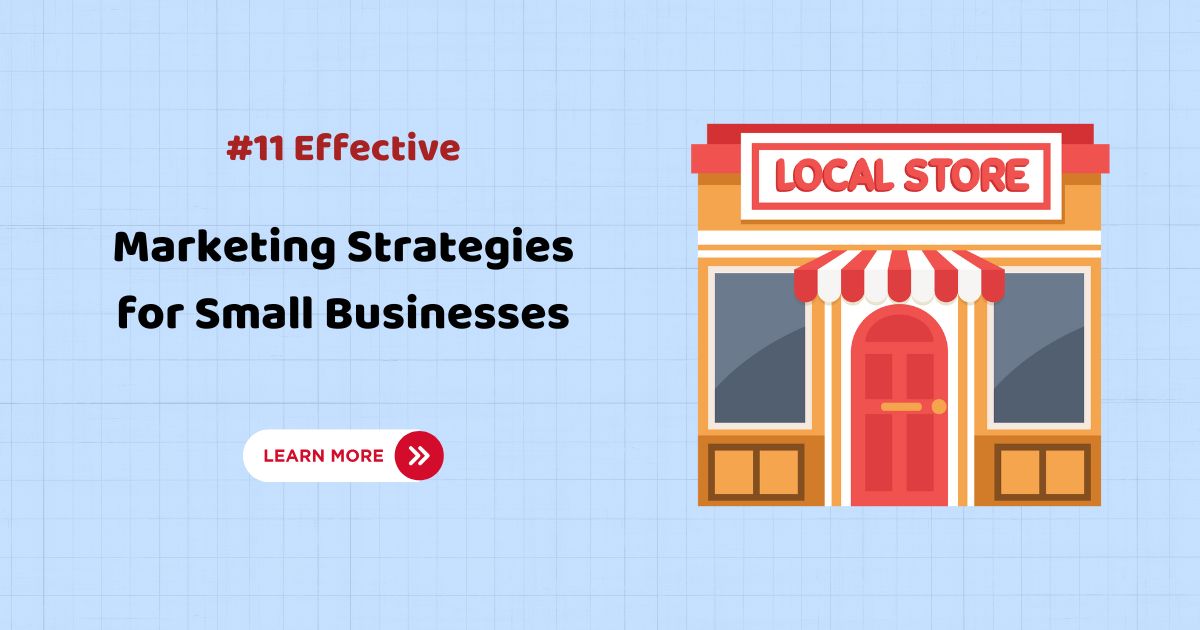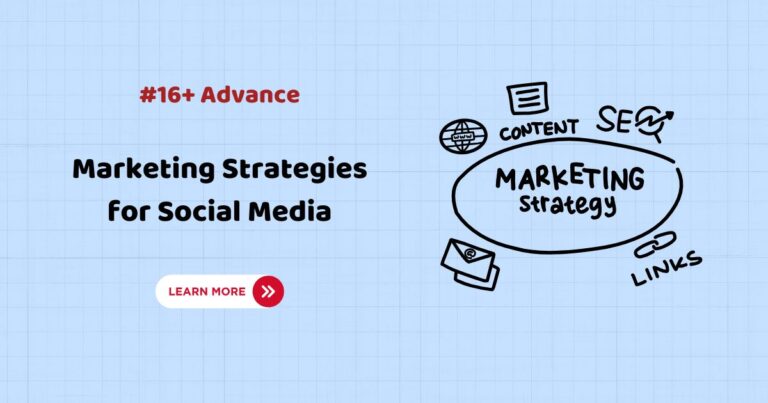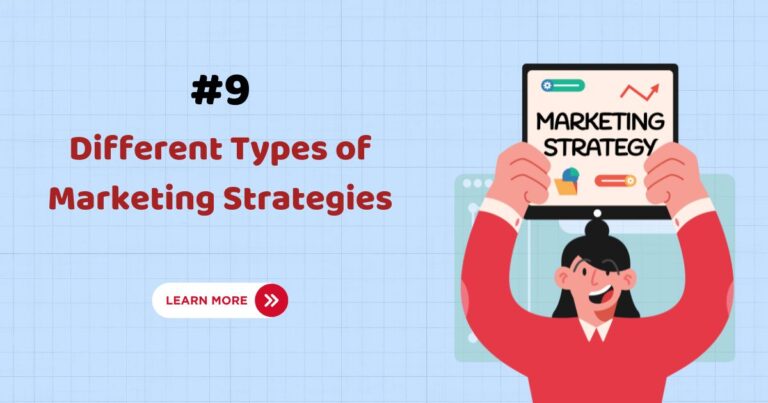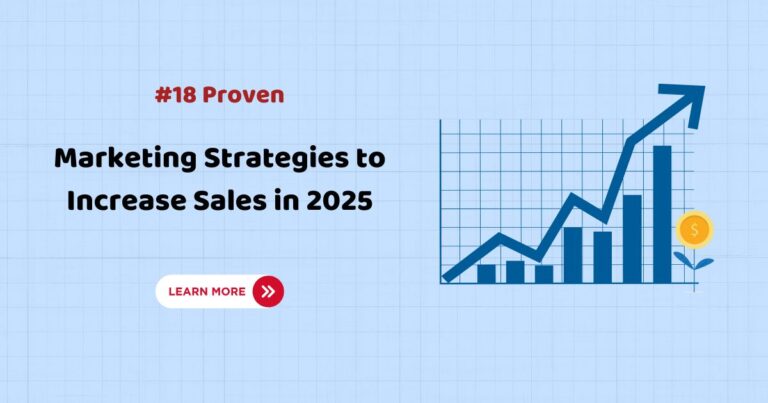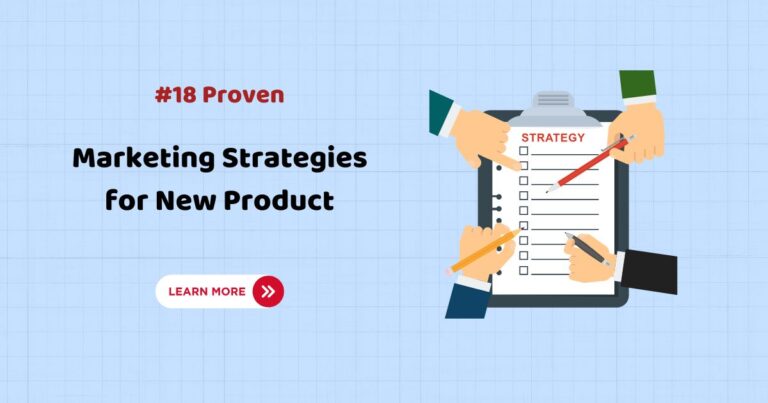11 Best Marketing Strategies for Small Businesses in 2025
When you’re running a small business, finding effective ways to market your products or services can feel overwhelming. The good news? You don’t need a big budget to create a big impact. In this article, we’ll cover the top marketing strategies for small businesses that are affordable, easy to implement, and proven to drive results.
From leveraging social media to creating a marketing plan, these strategies will help your business grow, connect with your audience, and stay ahead of competitors.
What is the marketing strategy for a small business?
A marketing strategy for a small business is essentially a plan to attract and retain customers while maximizing visibility and growth—all within the constraints of a smaller budget and resources. It involves identifying your target audience, crafting a compelling message, and choosing the most effective channels to reach potential customers.
Importance of Marketing Strategies for Small Businesses
Implementing effective marketing strategies is vital for small businesses to:
- Increase Brand Awareness
Marketing helps businesses become recognizable and memorable to potential customers.
- Attract and Retain Customers
Strategic marketing efforts are essential for acquiring new customers and maintaining relationships with existing ones.
- Drive Sales and Revenue Growth
Effective marketing directly contributes to increased sales and business expansion.
- Stay Competitive
Marketing enables small businesses to compete with larger firms by highlighting unique value propositions.
Adopting a comprehensive marketing strategy that includes social media, email, content creation, SEO, digital advertising, and community engagement is essential for small businesses aiming to thrive in today’s competitive landscape.
11 effective Marketing Strategies for Small Businesses
#1. Know Your Audience and Customers
Understanding who your customers are is the foundation of any successful marketing plan. Ask yourself:
- What are their interests and needs?
- Where do they spend their time online?
- What problems can your business solve for them?
Using tools like Google Analytics or social media insights can give you clear data to refine your strategy. This step is essential for creating a marketing plan for small businesses that works.
#2. Create a Professional Website
A website is your online storefront. Make sure it’s user-friendly, mobile-friendly, and includes key information like:
- What you sell
- How customers can contact you
- Testimonials and reviews
A great website also boosts your search engine rankings through Search Engine Optimization (SEO)—a powerful tool to drive organic traffic. For example, optimizing keywords like “Marketing strategies for small businesses” or “Best digital marketing strategies for small businesses” can help you appear in Google searches.
#3. Leverage Social Media Marketing
Social media is one of the best marketing strategies for small businesses because it’s free to start and highly effective. Platforms like Facebook, Instagram, and LinkedIn allow you to:
- Share engaging content
- Interact directly with customers
- Showcase your brand personality
Focus on effective social media marketing strategies for small businesses, such as posting consistently, using hashtags, and experimenting with ads.
A significant 96% of small business owners utilize social media to promote their businesses, with 75% using at least two social media channels. Facebook remains predominant, used by 76% of small businesses, followed by Instagram at 63%.
Pro tip: Check out the 10 best social media marketing strategies for small businesses for inspiration.
#4. Utilize Email Marketing
Building an email list is a cost-effective way to stay in touch with your audience. Send newsletters, exclusive deals, and product updates directly to their inboxes. Tools like Mailchimp or Constant Contact make it easy to get started.
Email marketing is a highly effective channel for small businesses, with 64.1% employing it in their strategies. Notably, 79% of these businesses consider email marketing vital to their overall strategy.
#5. Invest in Content Marketing
Content marketing involves creating valuable and relevant content to attract your target audience. Approximately 47% of small businesses plan to invest more in content marketing, recognizing its role in driving growth. This could include:
- Blog posts
- How-to guides
- Infographics
- Videos
For example, a blog post like “3 Marketing Strategies for a Small Business” can position you as an authority in your field. Regularly updated content also improves SEO, helping your business rank higher in search results.
#6. Encourage Customer Reviews and Referrals
Happy customers are your best advocates. Encourage them to leave reviews on Google, Yelp, or social media. Positive testimonials build trust and improve your online reputation.
Additionally, referral marketing—offering rewards for bringing in new customers—is another great way to grow your business.
#7. Collaborate with Local Influencers
Partnering with local influencers is a powerful way to reach new customers. Influencers can share your products or services with their audience, boosting your visibility. Look for influencers who align with your brand values and target audience.
This is one of the best influencer marketing strategies for small businesses with examples of real-world success stories.
#8. Use Paid Advertising (PPC and Social Ads)
Pay-per-click (PPC) advertising and social media ads can quickly increase your reach. Platforms like Google Ads or Facebook Ads let you target specific audiences based on location, interests, and behaviors.
Investing in digital ads, such as pay-per-click (PPC) campaigns, can effectively reach targeted audiences. The average cost per click in Google Ads for small businesses is $4.66, making it a viable option for those seeking immediate visibility.
#9. Try Event Marketing
Hosting or sponsoring events can connect your business with the local community. Consider workshops, pop-up shops, or webinars to build awareness and engage customers.
#10. Offer Deals and Coupons
Coupon deal sites like Groupon are an effective way to attract budget-conscious customers. These promotions can drive traffic to your business while introducing your brand to new customers.
#11. Test Your Strategies
Not all strategies will work the same for every business. Experiment with different approaches, track your results and adjust your plan as needed. Tools like Google Analytics can help measure what’s working.
Final Thoughts
Implementing these marketing strategies for small businesses doesn’t have to be complicated. Start by understanding your audience, creating a solid online presence, and experimenting with affordable strategies like email marketing, social media, and content marketing.
Remember, consistency is key. Whether you’re looking for good marketing strategies for small businesses or want to create the best digital marketing strategies for small businesses, the key is to focus on what resonates with your audience.

